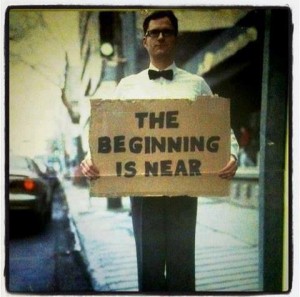As many evenings as we can, Ginger and I take a walk around our neighborhood, which, in our case, is downtown. Old North Durham sits just a few blocks north of the center of the city, not far from the Farmers’ Market Pavilion and a bunch of old warehouses and abandoned buildings that are coming back to life as different people bring their dreams to life. It’s even become informally known as the DIY District. Not too many years ago, downtown Durham was a wasteland; now it has come to life because people have done what it takes to chase down their dreams and many others have done all they can to encourage them.
Last night as we made the next to last turn toward home, we ran into a friend we met through the Wild Goose Festival a couple of years ago and who is now working as a social worker and living around the corner from us in a shared residence designed to support people with developmental disabilities. There are a couple of blocks of abandoned apartments that a developer bought and those with the dream of offering affordable and accessible housing got him to do more with the buildings that just go for the biggest buck. He is now finishing the third or fourth of the buildings with more to come. These are not temporary group residences, though I know there is a need for such housing.. People are buying these homes to put down roots in our neighborhood. Our friend’s dream is to help found a L’Arche community here in Durham; these homes are a step in that direction.
These new houses face the back of Fullsteam Brewery, now in its third year, which I continue to call The Most Encouraging Room in Durham. A couple of afternoons ago, I stopped by for a beer and, as usual, the place was crawling with kids and dogs. As I got to the door, a couple was coming out and the father was carrying a rather distressed and inconsolable child. “Why? Why, Daddy?” she cried. “Why do we have to leave Fullsteam?” I understood how she felt. Yet what is only a couple of years old to most of us is, I’m sure, a much older dream in the heart and mind of Sean, the owner, just as the accessible houses didn’t happen overnight. The same with Motorco Music Hall, or Geer Street Garden, and Cocoa Cinnamon (our soon to be newest coffee shop). Dreams take time to grow.
As I sat here this morning, thinking about the dreams coming to life all around us, I began to wonder how long God thought of the Incarnation before Jesus showed up in the manger. Yes, I understand God is not shackled by the constraints of time that bind us, and I still wondered how it all rolled out. The way the story of the Great Flood get told, God looked at what was going on in the world and made a decision — as though the flood had not always been on the calendar. To think it was all mapped out feels a bit mechanical, if not cruel. So what compelled God to decide it was time to know experientially what it was like to be human? Why wait so long or show up so soon? Why open things up?
When we as humans tell the story, it seems we somehow end up at the center of it. Jesus came for us. Why was God paying so much attention to our little pebble of a planet that matters only to those of us who live on it. Why would Jesus come here?
The hallmark of Jesus’ ministry was his care for the oppressed and marginalized. He came for the poor and outcast as much or more than anyone else. He taught the ones who had already flunked out. He kept saying, over and over, that our call was to care for the poor and downtrodden. Jesus was born as a poor kid to a less-than-important family on a throwaway planet to demonstrate incarnationally that God’s love reaches for every last one of us.
“When I gaze into the night sky,” said the Psalmist, “I wonder who we are that you are mindful of us?”
We are the throwaways on a dispensable planet. In a universe of possibilities, we are the afterthought, the center of absolutely nothing. We are the ones who could disappear and no one would notice. And Jesus came here. For us. On purpose. Because that’s what God does.
And that’s what God calls us to do. The greatest implication of the Incarnation is we are to go and do likewise. For those of us who have roofs over our heads and more food than we need, who have had the luxury of an education or the advantages of connections that allowed us to feel as though we deserve to be where we are, that call is difficult to hear because then we have to come to terms with the circumstances of our lives being something other than God’s blessing on us for being such good people.
As the rhetoric aimed at the poor in our country becomes more divisive and acerbic, looking at the manger or the stars or both must remind me Jesus became human not to say who deserved to be left behind but to know what it felt like to be dispensable and to make sure we knew no one deserved to be thrown away. Or maybe I can just look at the houses that are becoming homes alongside of the warehouses that are now gathering spots and the tienda where I can get a homemade empanada and the TROSA house full of folks in recovery.
Jesus would like Durham.
Peace,
Milton
